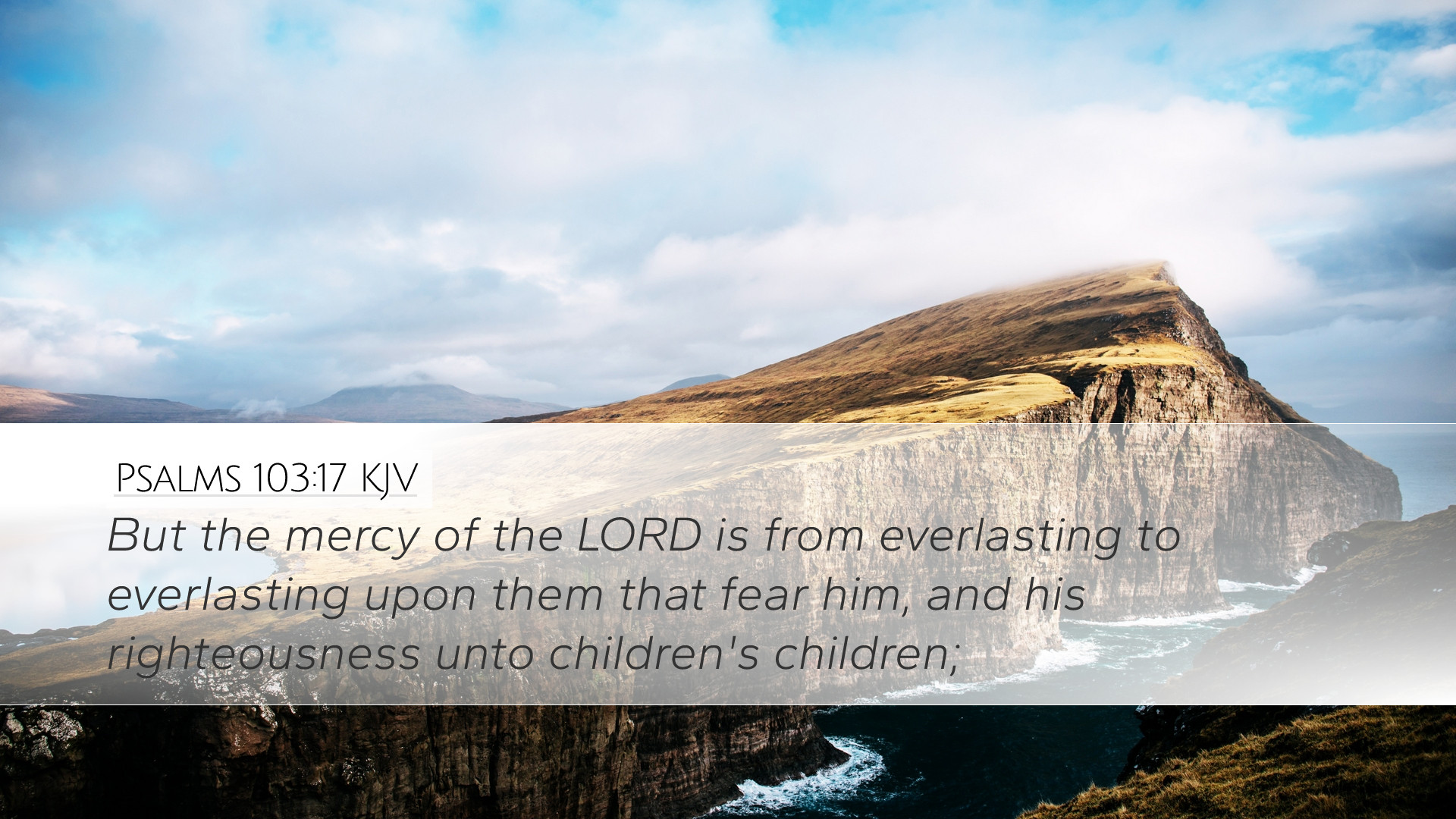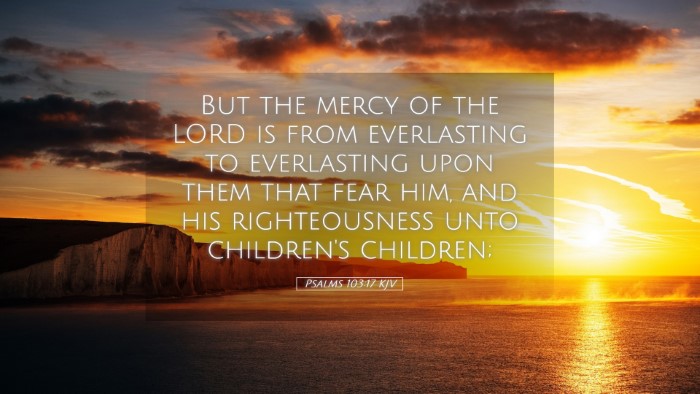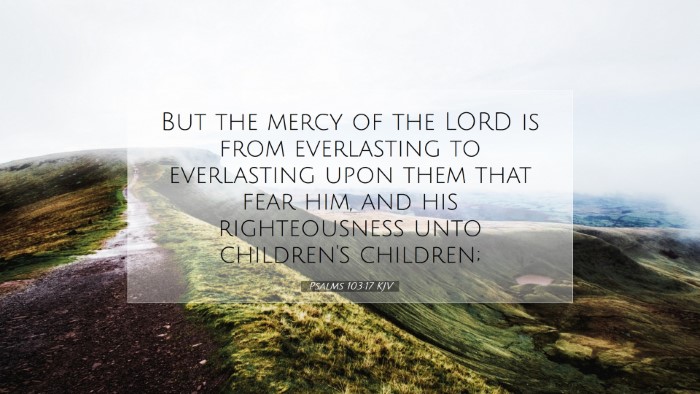Psalms 103:17 Commentary
Verse: "But the mercy of the Lord is from everlasting to everlasting upon them that fear him, and his righteousness unto children's children."
Introduction
This verse from the Psalms encapsulates profound themes of divine mercy, righteousness, and the generational impact of one's faith. The insights herein draw from respected public domain commentaries, presenting a cohesive understanding particularly valuable for pastors, students, theologians, and Bible scholars.
Thematic Overview
Psalms 103:17 highlights two primary aspects: God's enduring mercy and His righteousness that extends to future generations. These elements not only reflect God's nature but also His covenantal promise to His people.
1. The Nature of God's Mercy
“But the mercy of the Lord is from everlasting to everlasting...” This phrase emphasizes the infinitude and eternality of God's mercy.
-
Matthew Henry: He notes that God's mercy is not limited by time or circumstance; it is a steadfast attribute of His character. The phrase "from everlasting to everlasting" signifies that God's compassion is foundational and ever-present, an unceasing source of hope and comfort for the believer.
-
Albert Barnes: He expands on the definition of mercy, suggesting it can be understood as God's kindness and compassion toward humanity, particularly in the context of forgiveness. Barnes emphasizes that this mercy is available to all who reverently regard Him.
-
Adam Clarke: Clarke articulates that the mercy of the Lord reflects His covenant faithfulness. He points out that this mercy underpins all God's dealings with us, serving as the basis for our assurance of salvation and continual grace in our lives.
2. The Fear of the Lord
The recipients of this mercy are identified as those who "fear Him." This notion of fear encompasses reverence and awe before God.
-
Matthew Henry: He elucidates that true fear of God involves both dread of His justice and a profound respect for His mercy—the two being harmoniously linked. Such fear is not terror but rather a reverential awe that fosters a humble walk with God.
-
Albert Barnes: Barnes posits that fearing God serves as the proper attitude for receiving His blessings. This reverent stance opens the heart to recognize the depth of God's mercy, which is both a privilege and a responsibility.
-
Adam Clarke: Clarke points out that the fear of God is the basis of wisdom and understanding. This fear is transformative, influencing a believer’s life and actions, ultimately leading them closer into relationship with the Divine.
The Generational Aspect of Righteousness
The latter part of the verse states, “and his righteousness unto children’s children.” This reveals the far-reaching implications of God's righteousness.
-
Matthew Henry: He observes that the effects of God’s righteousness not only pertain to the immediate believer but extend to future generations. The righteousness manifested in the family shapes legacies of faith and virtue.
-
Albert Barnes: Barnes reinforces that God's righteous dealings and instructions not only guide the individual believer but also establish a framework for the coming generations, profoundly influencing their understanding of God’s character.
-
Adam Clarke: Clarke emphasizes the covenant aspect, suggesting that God’s promises are not merely individual but deeply communal. The righteousness of God promotes stability and order within the family unit, setting a righteous legacy for descendants.
Theological Implications
This verse speaks volumes regarding the core attributes of God: His mercy and righteousness. It shows a relational aspect to these attributes, suggesting that we are called not only to experience them but to participate in transmitting these to future generations.
Furthermore, it reflects important theological principles:
- Covenant Theology: The verse reiterates the importance of the covenant relationship between God and His people, affirming that God's faithful character shapes human experience.
- Intergenerational Responsibility: There exists a responsibility for current believers to instill an understanding of God's mercy and righteousness in their children and beyond. This illustrates the transference of faith as a communal rather than isolated experience.
- Hope and Assurance: For many believers, this verse is a source of profound hope, reassuring them that their fears and failures can be overshadowed by God’s merciful nature, providing assurance for their spiritual legacy.
Conclusion
Psalms 103:17 serves as a rich theological anchor for its readers, encapsulating the essence of God’s mercy and righteousness in relation to both individual believers and their descendants. The reflections derived from prominent public domain commentaries allow for a deeper understanding of the text, supporting the notion that believers are both recipients of and participants in God's unfolding story of redemption.


